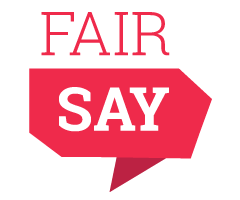A resounding (but qualified) yes, from agency, developer and client perspectives, with some more tips on making your Request for Proposals as effective as possible (and some extended car metaphors).
Yes, do give a budget…
“Always state the budget along with your RFP because if you don’t agencies will:
1) submit a proposal because they are desperate, work really hard for nothing, get frustrated, etc.
2) ask for the budget because they don’t have time for a poker game”
…but you might be better off indicating a range
“My advice from trying it all possible ways on different developments is give a range, but not an exact figure. Say ‘I have up to 15k’ and it’s just plain eerie how every developer will come back with a £14,999 quote.”
“Give no guidance at all, and the developer might either not bother, or spend an unreasonable amount of time creating a quote which is completely unaffordable.”
“If you give a window of about 5k range (more, obviously, if it’s a hugely expensive project) and sincerely say that you won’t just go with the cheapest, you get quite useful responses.”
“This is always tricky whichever approach you take. My preference would be to give the potential suppliers a budget range so that they have some idea what sort of budget you’re thinking about, but don’t be exact or you risk people simply padding out to reach the target. So in your head you have £10K, you might suggest a range of £8-12.”
You don’t have to fix a figure upfront though
“It also rather depends on the process you want to follow for procurement. Given that you say there’s scope for what can be done, I would be tempted to invite indicative broad responses from interested parties and then shortlist 2-3 to pitch in more detail.”
“I think a better approach is to be clear in your tender about the different elements and how much you need them. Building websites is like software development, with all the stages involved. You are at the requirements stage. I’ve tendered for projects where the decision was only made after the “implementation stage” (we had to build half the site as prototype before we didn’t get it).”
“If you make clear in your tender which bits are essential, which would be nice to have, and which would be some icing on the cake, that will really make a difference. Then instead of having a cost for the entire project, you get them to outline the costs for each of those, which will give a better idea of what you can achieve with your money. You can then always decide to only do the essentials, or maybe a few of the “nice to have” and drop the icing on the cake or any other combination. “
If you do it like that, there’s no need to give them any indication of budget. You can just say, between 5 and 50, as long as the essentials are within your budget, you’ll be fine.”
“Make sure to include training, documentation, and keep a bit of your budget for a continued relationship.”
Focus on requirements at each stage
“The next trick is controlling costs so it doesn’t end up being hugely more expensive when you get to the actual development – clear tick list of functionality that will be delivered and a good contract are always a good idea and give focus on both sides.”
Quality is harder to compare than price
But there’s a big difference in the quality of what’s on offer, and this can be hard for a client to evaluate.
“Building websites can be extremely open ended. In fact, who can say that their website is finished? Eventually it’s all about how much time you spend on it, and that time is generally restricted by budgets. If the budget is bigger, you spend more time. That’s the reason developers often just tender for the budget available.
“How much can be achieved with that budget generally depends on how efficient developers are with their time. So, in a way the tender process needs to identify the efficiency of the developer. Those who can do more with the money available are the ones that are (or should be) most attractive.”
“If websites were cars, as web agencies we often receive briefs that are the equivalent of this:
We would like a new car please. The car should have:
- An engine
- 4 wheels
- 4 doors
- 1 steering wheel
- 40-CD changer in-car MP3 compatible digital radio stereo with Bluetooth and GPS
Can you tell us how much it will cost?
“To which our response is: how much do you want to spend? Don’t you need brakes on your car as well, and windows and lights and a boot? What sort of journeys will you be doing in this car? How many people is it for? How long will you run it for? When do you need it delivered by? (And we’d also be tempted to ask, why are you being so weirdly specific about something that’s quite a luxury?)
“That tells us the level of attention you want paying to the design and quality of build (for example, is it a Vauxhall or a Bentley?)
“It tells us whether the features you’re asking for suit the purpose (whether you need a 2-seater for city driving or a multi-purpose vehicle with lots of storage space for long journeys).
“It also allows us to check whether there are any things you haven’t thought about and we might need to make allowances for in the budget (like ABS or airbags for example).
“There is a lot of difference between a Vauxhall and a Bentley but they both make drivable cars that work for a lot of people. It does bother me that often charities make decisions on cost alone without considering quality of build. So there are a lot of people who have Vauxhall budgets going to Bentley agencies and expecting Toyota Priuses (should that be Prii?) – and everybody is disappointed.
“You can only really tell whether you’re getting good value for money by balancing deliverables against quality of design and good references.”
“To further elaborate on the car comparison. When buying a car you might visit two or three different shops and compare the prices of the models, see how trust-worthy they seem and try to get a good overview of how much all those lovely extra features (like the golden ashtray and the fur on your steering wheel) might cost.
“Something you’ll have a hard time checking on is the actual quality of the engine itself. Even if you bring your in-house expert along to the sales pitch she/he won’t be able to test and check out every single part of the engine in a few hours. If you go out and yell “who can sell me a car for 5.000.- bucks instead of the usual 10.000.-” someone will probably say ‘sure, I have one that’s just perfect for you. It’s been used before but it’s just like a new one!’.
“The outside of the car will look super shiny and it seems to be able to do exactly what you want. But when the engine breaks down after the first trip you’ll know where the other 5,000 you didn’t want to spend might have been well invested.
The same point in non-car-speak:
“Websites have qualities that are quite hard to test if you are not an expert. Therefore it frequently happens that cheap websites are compared to expensive websites as if they were the same. They aren’t.
“Just because one car salesman tells you that you get a Mercedes Benz for the same price it doesn’t mean it’s true.”
For more useful advice see Rachel Collinson’s article on writing a great web design brief.
This article summarises a discussion on the Campaigning Forum email list. Thanks to everyone who contributed.

